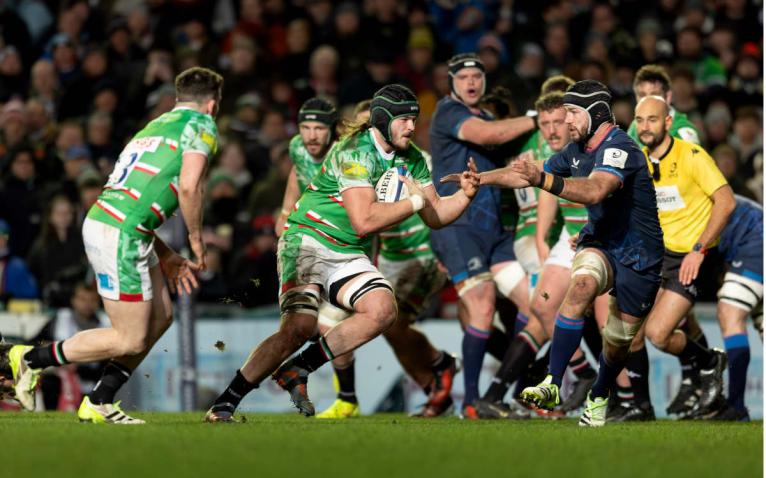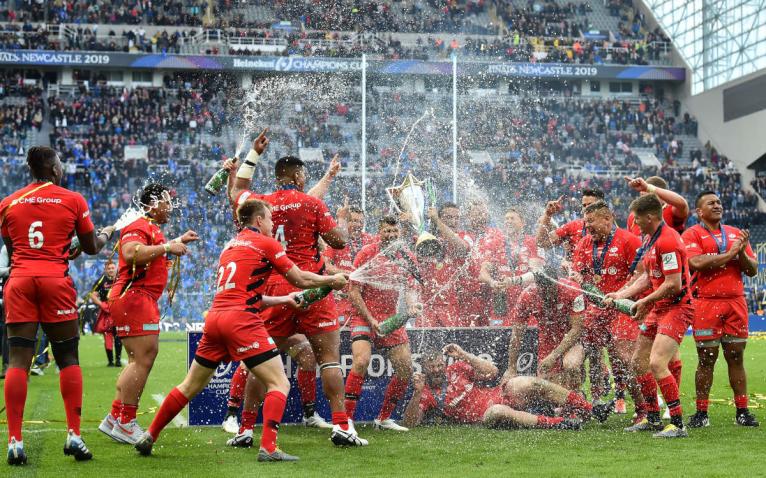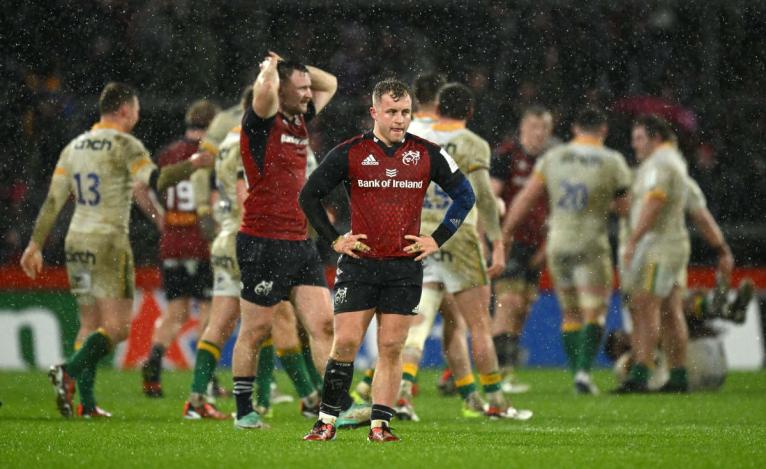In much the same way as it is a good idea to take the wedding photos before the evening revelry, it might also be worth saving an image of the Champions Cup last 16 in its current gleaming state should you be an Englishman before the inevitable deterioration.
The sight of six Premiership clubs still in contention compared to five French clubs is one for sore eyes given the current direction of cross-Channel travel.
After all the debate over the bleed of talent away from England here apparently is proof positive that the Premiership still packs a punch.
It is a healthy initial showing and hats off to the six survivors but unfortunately it is one which is unlikely to last.
No race was ever won at halfway and recent history tells us that when it comes to the pointy end of European club rugby’s grand annual adventure, the English clubs do not last the pace well.
The last six finalists in the tournament have been from France and Ireland, the last three winners have been from the Top 14.
England are the third cab on the rank when it comes to the Champions Cup.

The Premiership clubs’ results in the pool stages this season have created an impression of a revival. Harlequins, Leicester and Exeter have all recorded notable wins on French soil.
The head to head between the Premiership and the Top 14 reads 9-6 in favour of the English so far.
Knockout time, however, is when it really matters.
Once upon a time this would be the phase of the season when a Leicester, a Wasps or a Saracens would press their size 12s to the pedal in Europe.
They were clubs who had the workforce and wherewithal to win the monster match-ups. They were the ones who carried the aura in Europe.
You might frame an argument for Saracens, in the Last Dance season, for some of their departing A-listers, but it would be more based on a romantic heart than the logical deduction of the little grey cells.
Nowadays, as with the national team, that sense of English invincibility has faded.
They are in the game still but no longer ahead of it.
The Premiership has been terrific fun since its reappearance from its Six Nations cocoon with results oscillating as wildly as a sporran in a typhoon.
The tries have been flowing and the games compelling in what has been a stock car race of a fortnight but you would be hard pressed to pick a side out of the melee to take down the cream of Europe.
You might frame an argument for Saracens, in the Last Dance season, for some of their departing A-listers, but it would be more based on a romantic heart than the logical deduction of the little grey cells.

The last English team to win the Champions Cup was Exeter four years ago.
The Chiefs are still in this year’s tournament and face Bath in the last 16 which guarantees one English club in the quarterfinals but Rob Baxter, the director of rugby then and now, accepts they – and the rest of the Premiership – face an uphill struggle to win the Champions Cup this season.
The financial mismatch with the Top 14 makes it – over the course of a season-long competition – an uneven contest.
“I just think the Top 14 is in a slightly different cycle when it comes to European success than the Premiership just because of the challenges we’ve had over the last two or three years with the salary cap going down and the Covid repayments,” said Baxter.
“I have no doubt that if we beat Bath whoever we play in the next round we will put in a huge performance. Whether we would quite have enough to see them off, we’ll see.
“The advantage French clubs have – and this applies to the Irish provinces as well – is that the additional finance doesn’t just help with quality but it helps with depth.
“I said when Premiership clubs were having a lot of success in Europe at the start of the season whether this would define where we got to later on. The important thing would be how we all were when we get to the last 16 and the quarterfinals, how many fit players we’ve got compared to some of the other clubs.
When survival is the priority, success is an afterthought. The sobering reality of three Premiership clubs going to the wall puts everything else into sharp focus.
“We’re starting to feel the toll of injuries here. We have a couple of frontline props and backs out for the season, a frontline scrum-half out for the season and a few little niggly injuries to key players.”
When survival is the priority, success is an afterthought. The sobering reality of three Premiership clubs going to the wall puts everything else into sharp focus.
The meltdown actually had the counterintuitive effect of strengthening some of the surviving English clubs. Bath benefited from the arrival of Ollie Lawrence, Ted Hill and Alfie Barbeary.
Even so, they still cannot claim to have a vertical seam of resources equivalent to a Toulouse or Leinster though.
Neither can Harlequins, Leicester or, for all that they top the Premiership table, Northampton.

As for Exeter, having lost the spine of their Champions Cup-winning side to French rugby in the Simmonds brothers and Jack Nowell, they are having to rebuild with a new crop.
Baxter, with his farmer’s practicality, is content to re-seed and re-grow but it needs extra fertiliser to reach the level of European champions.
“We’re not as a club in as financially strong a position as we were pre-Covid to build a squad with the strength and depth we did,” said Baxter.
“But the salary cap is going back up and you will find then it will be a bit different.
For the foreseeable future, if a Premiership club is to go the distance in Europe, they will have to swim against the tide.
We would hope we will be able to get back to that level.”
Baxter views the financial imbalance as a cyclical situation which will right itself once the current issues in the English game are worked through.
That may not be straightforward though. While there are three fewer clubs in the Premiership to spread the life-giving broadcasting income around, the new domestic TV deal with TNT is still dwarfed by the French equivalent.
For the foreseeable future, if a Premiership club is to go the distance in Europe, they will have to swim against the tide.



Comments
Join free and tell us what you really think!
Sign up for free